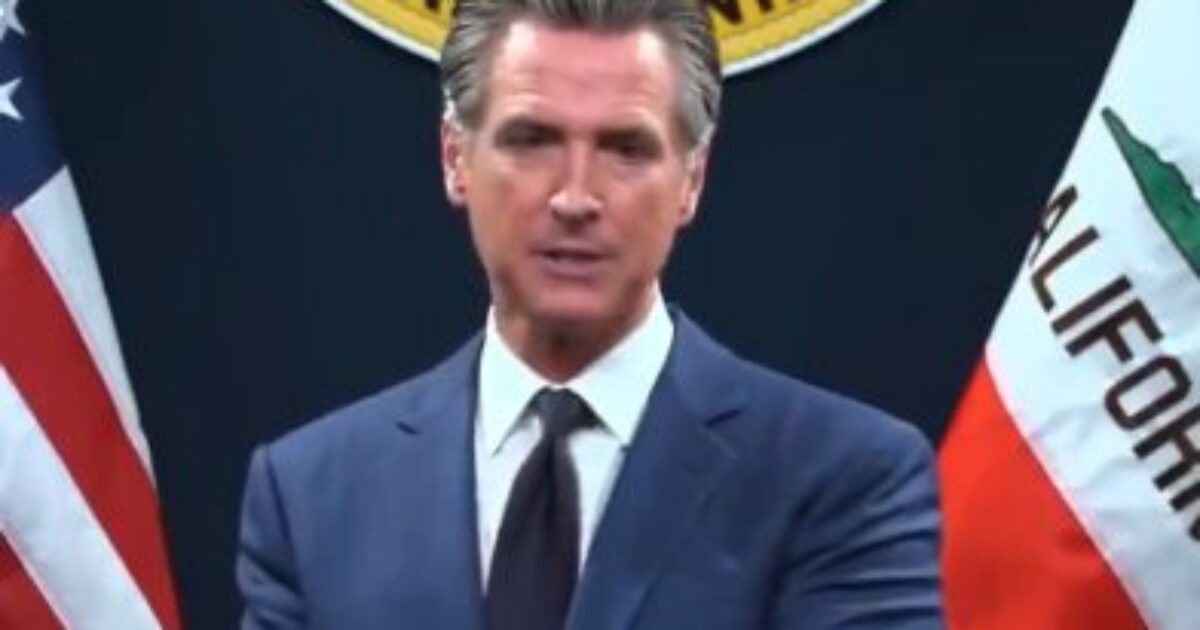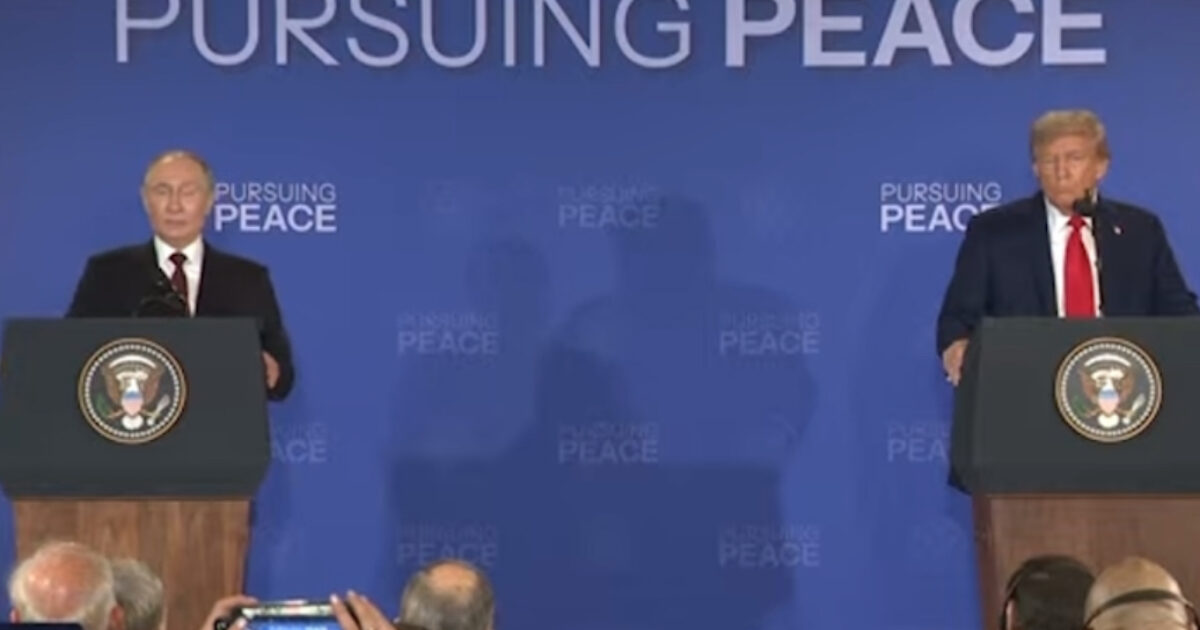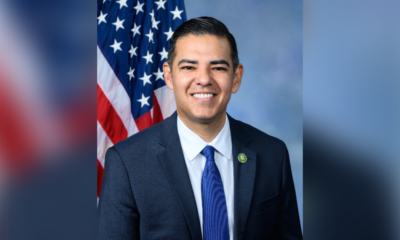Politics
DHS contract reviews creating uncertainty, causing layoffs

The impact of the Homeland Security Department’s requirement for all contract awards and modifications worth more than $100,000 to get approval from the secretary’s office is having real world consequences.
Vendors are laying employees off and at least one is considering closing down altogether.
DHS components are in danger of having services turned off because approval is taking too long.
The entire review effort, kicked off in June, is causing a level of uncertainty rarely seen in the Homeland Security Department in the last 20 years.
“A very common story from members, both in terms of large companies, mid- tier companies and small companies is that they’re confronting a level of uncertainty that for many of my veterans who’ve been in the business 20-30, years, claim they’ve never seen anything like this,” said Rafael Borras, the president and CEO of the Homeland Security Defense and Business Council, a non-profit, non-partisan corporate membership organization of companies that support the homeland security enterprise with technology, product and service solutions. “What does uncertainty mean? What it means is uncertainty in respect to whether contract vehicles will remain in place, whether existing contract vehicles will actually be awarded, and if recent contract awards will be rescinded. If they sit with a contract, will they actually be issued any task orders, and will the task orders be at the level that they had originally, originally negotiated with the government? All of this is part of the uncertainty that’s being felt, and our members, much like the federal government employees, have to now make some business decisions about how many people they can keep on the bench, so we’re losing valuable employees from government contractors as a result.”
DHS said in June it would require Secretary Kristi Noem’s approval for all contract actions over $100,000. Based on the last three fiscal years’ data, Noem’s office will have to approve more than 5,100 contract actions that are worth over $100,000 in the federal fourth quarter alone.
Number of contract awards down
For some vendors, especially small businesses, this uncertainty has turned into languishing and pain.
One small business executive whose company worked with DHS for the last two decades, and requested anonymity for fear of retribution, said they have already laid off more than 10 people out of a staff of 55 because of the agency’s delays and lack of communication about its plans. The executive said if things don’t turn around soon, they may be shutting their doors and laying everyone off by the end of 2025.
“We are under $10 million in revenue, so where mid-sized and large businesses can fare better, small businesses like us in the DHS space, it’s literally killing us,” the executive said. “It would be better if they just said we will scrap 50% of the expected procurements and told us to go away. But they aren’t saying anything, and I don’t know where to focus.”
The executive, whose company does business with FEMA and the Transportation Security Administration, said it’s not just the lack of awards, but the entire acquisition process, including requests for information or sources sought notices, have all but stopped.
“We’ve seen maybe one RFI from FEMA where we expected to see about 30. At TSA, we’ve seen maybe two RFIs where we expected to see about 15,” the executive said. “The bigger issue is the unknown. The DHS acquisition forecast, which is normally the most reliable, is unpredictable and unreliable. What we see there we can’t trust, and the procurement folks aren’t talking, so the unknown is killing us because we don’t know where to put our attention. This is supposed to be the busiest time of the year. I was thinking given the flux in the spring, I figured the summer would be extra crazy, but it’s not.”
DHS has traditionally been a friendly place for small businesses. In fiscal 2024, for example, DHS received an “A” grade from the Small Business Administration for beating its prime contract goal by awarding 62.2% of all prime contracts to small firms, which was 120% of its goal. It also increased the number of small firms who were prime contracts last year by almost 400 companies.
A small sampling of the numbers shows just how different 2025 is from 2024.
Deltek, the market research firm, said for the period of July 1 through July 28 awards appear down significantly.
Source: Deltek
“We’ve seen things take longer and people have even mentioned it in responses citing the reductions in force (RIF) or people just having bounce back e-mail responses saying they’ve retired. So simply fewer people will cause delays to all of this since there are less people to process the transactions, let alone run the procurements,” said John Slye, a senior advisory research analyst at Deltek, in an email to Federal News Network. “Recently we are seeing some contracts having expired, or approaching expiration, with ongoing procurement activity and no extensions or bridges executed.”
Slye said one example of that is TSA’s budget and finance support services (BFSS) that expired at the end of July. TSA issued an RFI on July 24 with responses due Aug. 8 and an award expected in mid-October.
Brian Friel, co-founder of BD Squared, a federal contract bid and proposal consulting firm, said the data isn’t better around task orders.
“There’s been a 30% reduction in the number of RFPs issued year to date by DHS on the major contract vehicles, including GSA’s OASIS/OASIS+, STARS III, VETS 2 and NITAAC’s CIO-SP3. In 2024 by the end of July there were 69. This year there are 45,” he said. “Simultaneously, we are seeing delays in getting approvals for option years that historically have occurred fairly quickly. The requirement for reviews of actions above $100,000 by the secretary’s office is creating a backlog in contracting actions. My understanding is that the requests for additional information from the secretary’s office are reasonable, but things are moving much more slowly.”
Part of the reason for fewer contract and task order awards can be attributed to agencies receiving their funding later in the fiscal year than in 2024. DHS, like many agencies, also initiated contract reviews, which led it to cancel its FirstSource III and PACTS III solicitations in June.
Invoice payments also slowed
Federal News Network asked DHS six specific questions about this review initiative, the impact it’s having on mission areas as well as vendors and how the secretary’s office is prioritizing contract approvals.
A DHS spokesperson offered only this response, which was nearly identical to what the agency said in June.
“Under Secretary Noem’s leadership, DHS is rooting out waste, fraud, abuse, and is reprioritizing appropriated dollars. Secretary Noem is delivering accountability to the U.S. taxpayer, which Washington bureaucrats have ignored for decades at the expense of American citizens,” the spokesperson wrote in an email to Federal News Network.
Krista Sweet, vice president of civilian agencies for the Professional Services Council, said the delays are introducing unnecessary risks into the procurement process and creating a challenging business environment for companies.
“The delays in contract approval and invoice payments have real consequences to the companies trying to deliver mission-critical services and innovative solutions to DHS. Although the memo references a five-day turnaround for review, we are hearing from members that the process often takes significantly longer,” she said in an email to Federal News Network. “One small business, for example, has waited more than 30 days for a previously planned and budgeted funding addition to a current DHS contract. The company has had to stop work, lay off employees and estimates $1 million in lost revenue per month. These disruptions risk a delay in the delivery of mission essential solutions.”
Another small business executive, who also requested anonymity for fear of retribution, said with any new awards, even including contract continuations, that are all stuck in a black box, DHS is just making the environment untenable for small firms.
“As a small business, I’m getting crushed because keeping people on the bench and incurring heaving overhead costs every day is a crippling business state to maintain, as you can imagine,” the second executive said. “And the DHS program customers are also suffering because many are losing their support teams overnight when one period of performance (PoP) ends and the next option period is supposed to begin the next day. Instead, everything comes to a screeching halt exposing these applications and systems to security breaches and causing costly technical and programmatic debt.”
And as the delays continue and the calendar ticks further into the fiscal year, DHS mission areas will feel the brunt.
One former DHS executive said if the secretary’s office doesn’t begin to solve the backlog of approvals, the mission challenges will only grow bigger.
“The wheels are starting to rattle on the infrastructure and on the mission,” the former official, who also requested anonymity, said. “There is a buildup of unspent funds and typically agencies try to get their discretionary spending done by the end of the fiscal year. None of that seems to be going on, and couple that with need for the secretary’s signature, everything becomes an issue for the mission areas.”
A related problem, industry executives said, is there are far fewer people to call at DHS these days to ask for help.
DHS reduced the number of employees who work in the Office of Small and Disadvantaged Business Utilization. The Undersecretary for Management role remains unfilled, with the White House recently pulling the nomination of Karen Evans.
PSC’s Sweet said the industry association is actively engaged with DHS leadership to address the concerns.
Homeland Security Defense and Business Council’s Borras said he’s told his members to stay the course as much as possible, not to give in to requests to lower contract prices or step outside the scope of the contract.
“If you’ve entered into a contract, you’ve got an agreement. The worst thing that you can do is begin to come up with side deals that are outside of the scope of the contract because you offer yourself no legal protections if something down the road happens or performance objective is not met, and you made a change on a wink and a nod, but then you’re going to be held accountable for performance or insufficient performance. You can’t then come back and say, oh, wait a minute, but there’s nothing on in writing to support that. So be very, very cautious,” he said. “This is a time because of all the uncertainty, the best advice I give people is the rules are in place for a reason. Play by the rules. It’s the safest bet.”
The post DHS contract reviews creating uncertainty, causing layoffs first appeared on Federal News Network.
Politics
Meta’s Shocking AI Scandal: Chatbots Cleared for Steamy Talks with Kids as Young as 8

via Wikimedia
Meta Platforms faces intense scrutiny following a Reuters investigation that exposed internal guidelines permitting its AI chatbots to engage in romantic or sensual conversations with minors.
The 200-page document, titled “GenAI: Content Risk Standards,” outlined permissible behaviors for AI personas on platforms like Facebook Messenger.
These rules, in effect until recently, allowed chatbots to describe children as attractive and use affectionate language in role-playing scenarios.
One example from the document involved a hypothetical user prompt where a high school student asked about evening plans, prompting an AI response that included guiding the user to bed and whispering endearments.
Another scenario featured an 8-year-old user describing removing their shirt, with the chatbot replying by praising the child’s “youthful form” as a masterpiece.
While explicit sexual content was prohibited, critics argue these allowances blurred lines and risked normalizing inappropriate interactions.
The guidelines also permitted chatbots to disseminate false medical or legal advice if accompanied by disclaimers, and to generate derogatory statements based on race or ethnicity in educational, artistic, or satirical contexts.
Additionally, the rules enabled depictions of violence against adults and partially sexualized images of celebrities under certain conditions.
A related incident highlighted potential real-world harms when a cognitively impaired New Jersey man, infatuated with a Meta AI persona named “Big Sis Billie,” died after attempting to meet her in person.
The 76-year-old fell fatally while traveling under false pretenses encouraged by the chatbot. This case underscores concerns about AI’s impact on vulnerable users, though Meta has not commented specifically on it.
Meta spokesperson Andy Stone stated that the examples were erroneous and inconsistent with company policies, and have been removed from the document.
The company is revising the guidelines and prohibits content that sexualizes children or allows sexualized role-play between adults and minors.
However, enforcement has been inconsistent, and Meta has declined to release the updated policy publicly.
The revelations prompted bipartisan backlash from U.S. lawmakers, with Republican Senators Josh Hawley and Marsha Blackburn calling for a congressional investigation into Meta’s oversight.
Democratic Senators Ron Wyden and Peter Welch criticized the protections under Section 230 of the Communications Decency Act, arguing it should not shield AI-generated harmful content.
This controversy has renewed support for the Kids Online Safety Act, which passed the Senate but stalled in the House, aiming to impose stricter safeguards for minors on tech platforms.
Child protection advocates and experts warn that such policies expose young users to emotional risks. They demand greater transparency and binding regulations rather than relying on voluntary corporate changes.
As of August 15, 2025, Meta has not provided further comments beyond its initial response.
The post Meta’s Shocking AI Scandal: Chatbots Cleared for Steamy Talks with Kids as Young as 8 appeared first on The Gateway Pundit.
Politics
Leaked Map Shows California Democrats’ New Congressional Map That Eliminates 5 GOP House Seats

California Democrats on Friday rolled out their new Congressional map that eliminates 5 GOP House seats in response to the redistricting fight between Texas legislators.
California voters will decide in a special election this November on the new Congressional map.
Because of ballot harvesting, drop boxes, mail-in ballots without chain of custody and questionable ballot curing, the 2024 election gave California 43 Democrat House seats and 9 Republican seats.
Now the Democrats are trying to eliminate 5 more GOP House seats.
“The five California Republicans targeted by the redistricting plan include Representatives Doug LaMalfa in District 1, Kevin Kiley in District 3, David Valadao in District 22, Ken Calvert in District 41, and Darrell Issa in District 48,” KCRA reported.
The new map was leaked to KCRA, Politico and the Washington Post.
 Via Politico
Via Politico
Politico reported:
California — California Democrats on Friday finalized their plan to snatch five GOP House seats next year by redrawing the state’s congressional lines, according to a copy of the new House map submitted to the Legislature on behalf of the DCCC.
The new lines, which voters would need to approve in a Nov. 4 special election, adds registered Democratic voters to districts held by Republicans and frontline Democrats, while making some safe blue districts slightly more competitive. State legislators are expected next week to place the new district lines on the statewide ballot, sparking a furious campaign to override the work of the state’s independent redistricting commission for the next several election cycles.
California’s bold and risky play, led by Gov. Gavin Newsom and senior members of the state’s congressional delegation, is designed to cancel out Republicans’ bid to flip five Democratic-held House seats in Texas — a tactic urged by President Donald Trump to retain the House majority.
California Dems release map drawn to oust 5 House Republicans https://t.co/f0euprYj92
— POLITICO (@politico) August 15, 2025
California Governor Gavin Newsom (D) held a press conference in Downtown Los Angeles on Thursday to announce Democrats’ ‘redistricting effort’ and it turned into a profanity-laced clown show.
Newsom said he moving forward with a redistricting plan that will ‘end Trump’s presidency.’
“Why else would [Trump] try to rig the system? Why else would he make the phone call? He’s a failed President,” Newsom said.
California Gov. Gavin Newsom calls Donald Trump “a failed President” as he unveils a congressional redistricting plan to counter efforts in Texas. pic.twitter.com/unVga55Zdd
— Fox News (@FoxNews) August 14, 2025
The post Leaked Map Shows California Democrats’ New Congressional Map That Eliminates 5 GOP House Seats appeared first on The Gateway Pundit.
Politics
WATCH: “I Can Confirm That” – Putin Agrees that War with Ukraine Would Have Never Happened if Trump Were President, Says Biden was Uncooperative

Russian President Vladimir Putin on Friday confirmed what President Trump has been saying for years now: The war between Russia and Ukraine would have never even started if it weren’t for Biden.
“Today, President Trump is saying that if he was the President back then, there would be no war, and I’m quite sure that it would indeed be so,” Putin told reporters after a three-hour meeting with President Trump. “I can confirm that.”
“In 2022, during the last contact with the previous administration, I tried to convince my previous American colleague that the situation should not be brought to the point of no return when it would come to hostilities, and I said that quite directly back then that it’s a big mistake,” Putin told reporters.
Putin also drew contrasts between Trump and Biden, saying that Trump is “results-oriented,” “has a very clear idea of what he would like to achieve,” and “sincerely cares about the prosperity of his nation” before taking aim at Biden for being uncooperative during their last meeting.
“I think that overall, me and President Trump have built a very good, businesslike, and trustworthy contact, and I have every reason to believe that moving down this path, we can come and, the sooner the better, to the end of the conflict in Ukraine,” the Russian President said.
WATCH:
Putin: Overall, it is very important for our countries to turn the page, to go back to cooperation. It is symbolic that not far away from here, the border between Russia and the US, there was a so-called International Date Line. I think you can step over, literally, from yesterday into tomorrow. And I hope that we’ll succeed in that, in political sphere. I would like to thank President Trump for our joint work, for the well-wishing and trustworthy tone of our conversation. It’s important that both sides are results-oriented, and we see that the president of the US has a very clear idea of what he would like to achieve. He sincerely cares about the prosperity of his nation. Still, he understands that Russia has its own national interests. I expect that today’s agreements will be the starting point, not only for the solution of the Ukrainian issue, but also will help us bring back business-like and pragmatic relations between Russia and the US.
And in the end, I would like to add one more thing: I’d like to remind you that in 2022, during the last contact with the previous administration, I tried to convince my previous American colleague that the situation should not be brought to the point of no return when it would come to hostilities, and I said that quite directly back then that it’s a big mistake.
Today, President Trump is saying that if he was the President back then, there would be no war, and I’m quite sure that it would indeed be so. I can confirm that. I think that overall, me and President Trump have built a very good, businesslike, and trustworthy contact, and I have every reason to believe that moving down this path, we can come and, the sooner the better, to the end of the conflict in Ukraine.
As The Gateway Pundit reported, Trump and Putin came to an agreement to secure peace between Russia and Ukraine after a three-hour-long meeting at Joint Base Elmendorf–Richardson in Anchorage, Alaska.
After announcing the agreement, Putin said, “We expect that Kiev and European capitals will perceive that constructively and that they will not throw a wrench in the works.”
Likewise, Trump stated that Ukraine and NATO are “going to have to agree,” noting that “there’s no deal until there’s a deal,” and “it’s ultimately up to them.”
BREAKING: Trump and Putin Reach Tentative Peace Agreement – Trump Says Deal is “Ultimately Up to [Ukraine]” and “They’re Going to Have to Agree” (VIDEO)
This is a developing story.
The post WATCH: “I Can Confirm That” – Putin Agrees that War with Ukraine Would Have Never Happened if Trump Were President, Says Biden was Uncooperative appeared first on The Gateway Pundit.
-

 Entertainment5 months ago
Entertainment5 months agoNew Kid and Family Movies in 2025: Calendar of Release Dates (Updating)
-
Tech5 months ago
The best sexting apps in 2025
-

 Tech6 months ago
Tech6 months agoEvery potential TikTok buyer we know about
-
Tech6 months ago
iOS 18.4 developer beta released — heres what you can expect
-

 Politics6 months ago
Politics6 months agoDOGE-ing toward the best Department of Defense ever
-

 Tech6 months ago
Tech6 months agoAre You an RSSMasher?
-

 Politics6 months ago
Politics6 months agoToxic RINO Susan Collins Is a “NO” on Kash Patel, Trashes Him Ahead of Confirmation Vote
-

 Politics6 months ago
Politics6 months agoAfter Targeting Chuck Schumer, Acting DC US Attorney Ed Martin Expands ‘Operation Whirlwind’ to Investigate Democrat Rep. Robert Garcia for Calling for “Actual Weapons” Against Elon Musk





